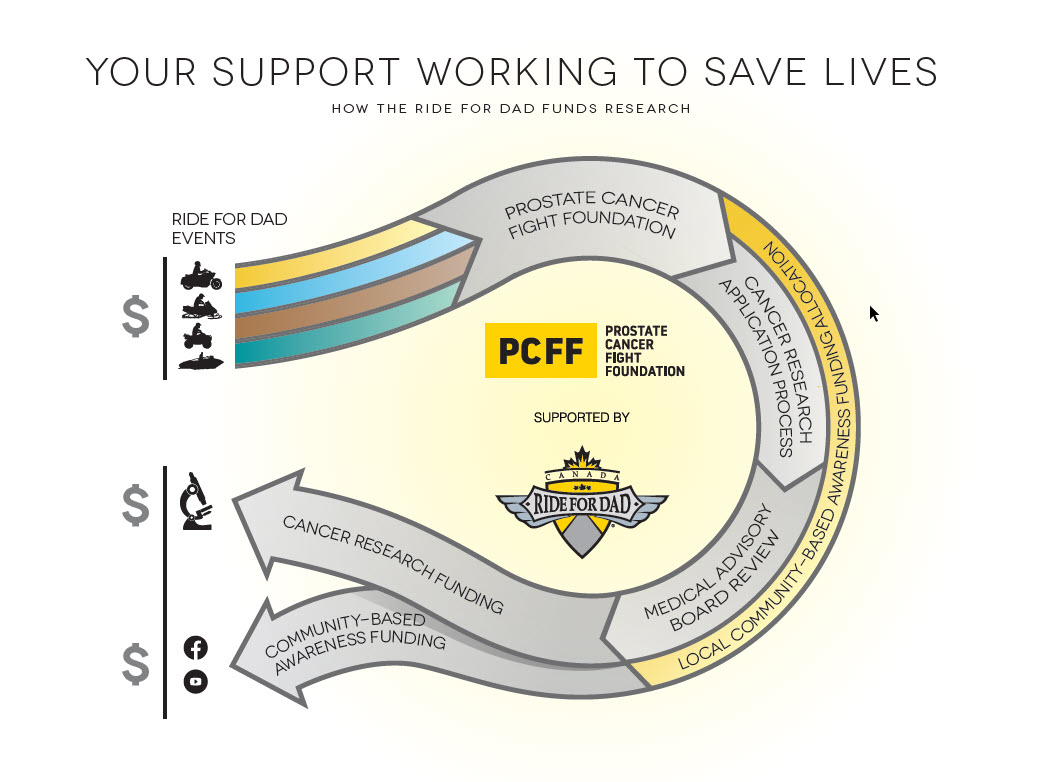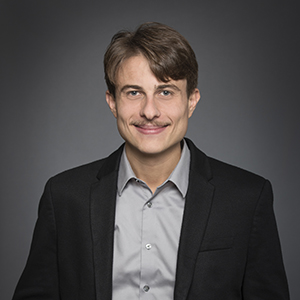The Prostate Cancer Fight Foundation (PCFF) is a registered Canadian charity and the charitable arm of the Ride For Dad (RFD).
Proceeds of RFD events are donated to PCFF to fund research and promote awareness about prostate cancer and the importance of early detection.
The PCFF is a leading investor in cutting-edge prostate cancer research. To date, PCFF has provided early-stage funding to dozens of innovative research projects and is making a real difference in the fight against prostate cancer. PCFF-funded research focuses on saving lives through improved diagnostic techniques and less-invasive effective treatment methods to improve the quality of life of men and their families fighting the disease.
How Does Funding Work?

CANCER RESEARCH FUNDING
Grant applications for research funding are submitted annually to the PCFF. Each peer-reviewed application is assessed by the PCFF’s Medical Advisory Board, comprised of leading prostate cancer experts, based on its scientific merit, quality of the research team, and relevance to PCFF goals and budget. All projects funded by PCFF are for research intended to save and improve the lives of men diagnosed with prostate cancer.
COMMUNITY-BASED AWARENESS FUNDING
Prostate cancer is the most diagnosed cancer among Canadian men. If detected early the five-year survival rate is over 93%. Prostate cancer can grow undetected for years as it can remain asymptomatic until it spreads (metastasizes). Early detection is best achieved through regular blood tests (PSA) and physical exams.
Ride For Dad awareness campaigns educate the public on the risks of prostate cancer and the life-saving importance of early detection. Advertising, social media, and public events seek to engage the public and urge men to consult their doctor and take action on their prostate cancer. #GetTheBloodTest
MEDICAL ADVISORY BOARD

Dr. Michele Ardolino

Dr. John Lewis

Dr. Juanita M. Crook

